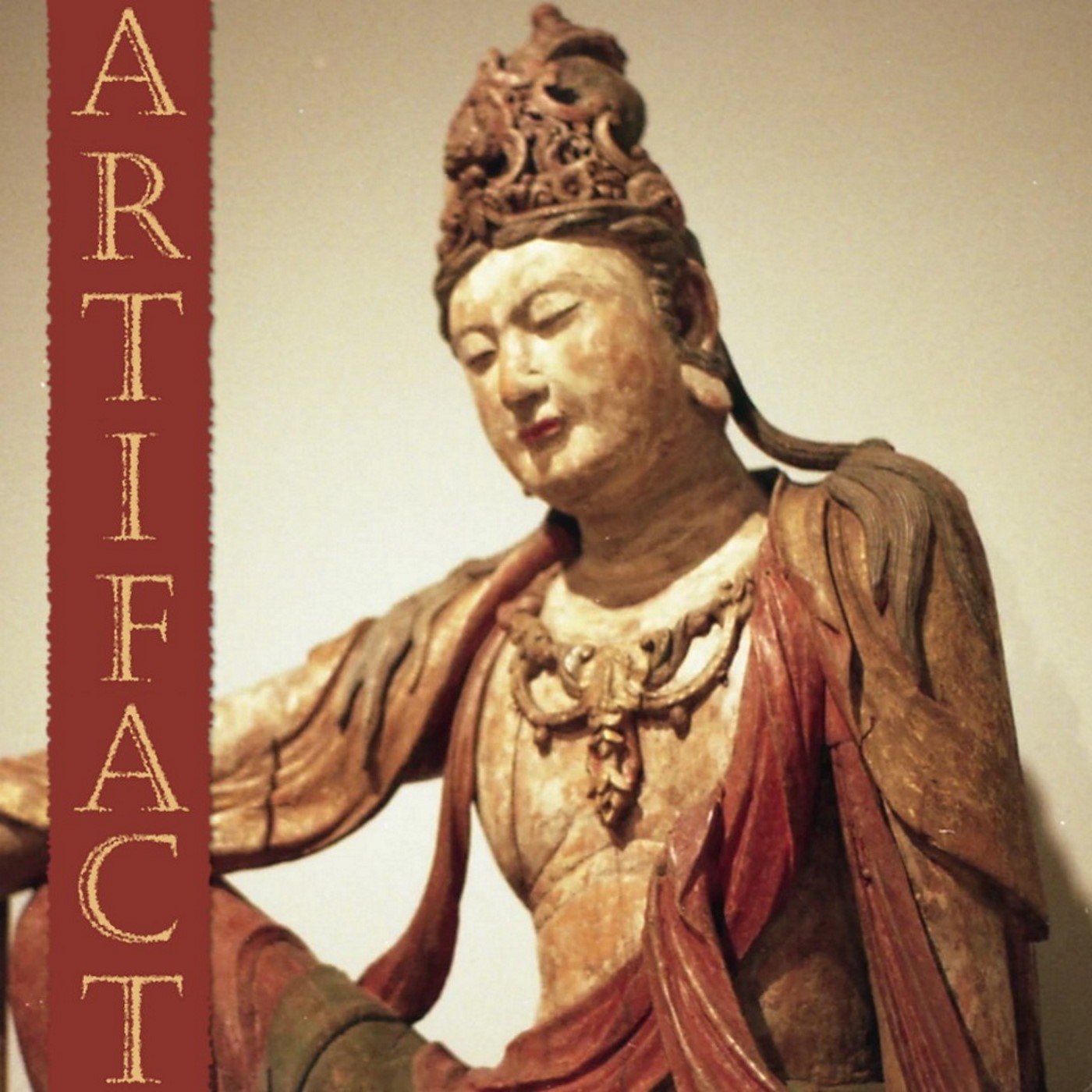
9.1K
Downloads
64
Episodes
The ArtiFact Podcast is a long-form show on books, culture, painting, and music hosted by Alex Sheremet, Joel Parrish, and a revolving door of co-hosts and guests. Each subject is covered in depth and at length, with past shows featuring the Epic of Gilgamesh, Charles Johnson's "Oxherding Tale", Leonard Shlain’s "Art & Physics", John Williams's "Stoner", and more. Opinionated, controversial, and prone to making enemies and friends of friends and enemies, ArtiFact delivers new perspectives on the arts by artists of talent.
Episodes

Monday Aug 23, 2021
Monday Aug 23, 2021
Elizabeth Barrett Browning (1806 – 1861) was one of the best poets of the 19th century, yet remains little known today and even less read. At a time when feminist literary criticism (among other relevant lenses) is ascendant, how did Barrett Browning go from an almost universally admired writer to one that is neglected in favor of her literary inferiors? In ArtiFact #19, Joel Parrish and Alex Sheremet tackle her classic sonnet sequence, Sonnets from the Portuguese, going through roughly half the poems line by line to uncover Browning’s complicated views on love, art, and other subjects, highlighting her philosophical depth, technical skill, as well as her inversions of familiar tropes.
You can also watch this discussion on our YouTube channel: https://www.youtube.com/watch?v=5nCaB4_tJCQ
Timestamps:
0:24 – Introducing Elizabeth Barrett Browning + Sonnets from the Portuguese in context; William Blake, Walt Whitman, Shakespeare, John Donne; Browning’s world-building, sonnet-units, and characterization from poem to poem
11:37 – Sonnet 1: “I thought once how Theocritus had sung…” – how Elizabeth Barrett Browning creates a world with values, assumptions, moods, and characters with their own narrative arcs; how a complex and even ambiguous view of love gets presented from the very beginning; the love of melancholy; love vs. death; introducing the objective-subjective distinction in Sonnets from the Portuguese
23:36 – Sonnet 3: “Unlike are we, unlike, O princely Heart!” – inverting the vocative cliché; the modernity of Elizabeth Barrett Browning; time and death as leveling forces for the objective + subjective divide
35:16 – Sonnet 12: “Indeed this very love which is my boast…” – a weaker sonnet that nonetheless has some redeeming features, such as ambiguity in the ending
40:49 – Sonnet 13: “And wilt thou have me fashion into speech…” – inverting the classic ‘I can’t even express my love’ trope in poetry; the use of literal images to offset generic and/or trope imagery; the subtle and underrated feminism of Elizabeth Barrett Browning
53:20 – Sonnet 14: “If thou must love me, let it be for naught…” – Elizabeth Barrett Browning seeks a more substantive love; cleverness from line to line; a lackluster ending
01:02:20 – Sonnet 15: “Accuse me not, beseech thee, that I wear…” – a truly great poem; some of the best clues to the narrator’s thinking about love, relationships, and more
01:13:28 – Sonnet 17: “My poet, thou canst touch on all the notes…” – is Elizabeth Barrett Browning presaging theoretical physics; how the narrator’s self-effacing words are strangely turned on the addressee
01:20:32 – Sonnet 18: “I never gave a lock of hair away…” – inverting the “lock of hair” trope in romantic writing
01:29:28 – Sonnet 19: “The soul’s Rialto hath its merchandise…” – more sonnet-units, forming a unit with Sonnet 18; Alex makes a decent number of mistakes after failing to refer to his own notes
01:36:43 – Sonnet 22: “When our two souls stand up erect and strong…” – how Elizabeth Barrett Browning uses conventionally “positive” images to opposite effect
01:46:35 – Sonnet 25: “A heavy heart, Beloved, I have borne…” – turning the “heavy heart” cliché into a literal image that becomes the fulcrum for startling imagery
01:52:16 – Sonnet 26: “I lived with visions for my company…” – some good images, but a mixed bag
02:01:04 – Sonnet 33: “Yes, call me by my pet-name! let me hear…” – one of Elizabeth Barrett Browning’s greatest + most famous poems; the strange mix of feminist eroticism and invocations of childhood; how EBB plays off of John Milton’s famous sonnet “On His Blindness”
02:12:29 – Sonnet 34: “With the same heart, I said, I’ll answer thee…” – merely recapitulative of the greater and more daring preceding sonnet
02:19:08 – Sonnet 36: “When we first met and loved, I did not build…” – proto-feminism in its treatment of love as an “unowned thing”; some good images
02:22:27 – Sonnet 37: “Pardon, oh, pardon, that my soul should make…” – some of Elizabeth Barrett Browning’s most modern imagery; thematic connections between images help invert the familiar; the Hart Crane-like ending
02:29:49 – Sonnet 43: “How do I love thee? Let me count the ways…” – Elizabeth Barrett Browning’s most famous poem; a mix of daring images + conventional choices
02:41:02 – Sonnet 44: “Beloved, thou hast brought me many flowers…” – a great ending to the sequence; Alex and Joel disagree on the quality of the poem; how it recapitulates and refracts Sonnets from the Portuguese
Read the latest from the automachination universe: https://automachination.com
Read Alex’s (archived) essays: https://alexsheremet.com/
Thumbnail photo © Joel Parrish: https://poeticimport.com
Tags: #ArtiFact, #Sonnet, #ElizabethBarrettBrowning

No comments yet. Be the first to say something!